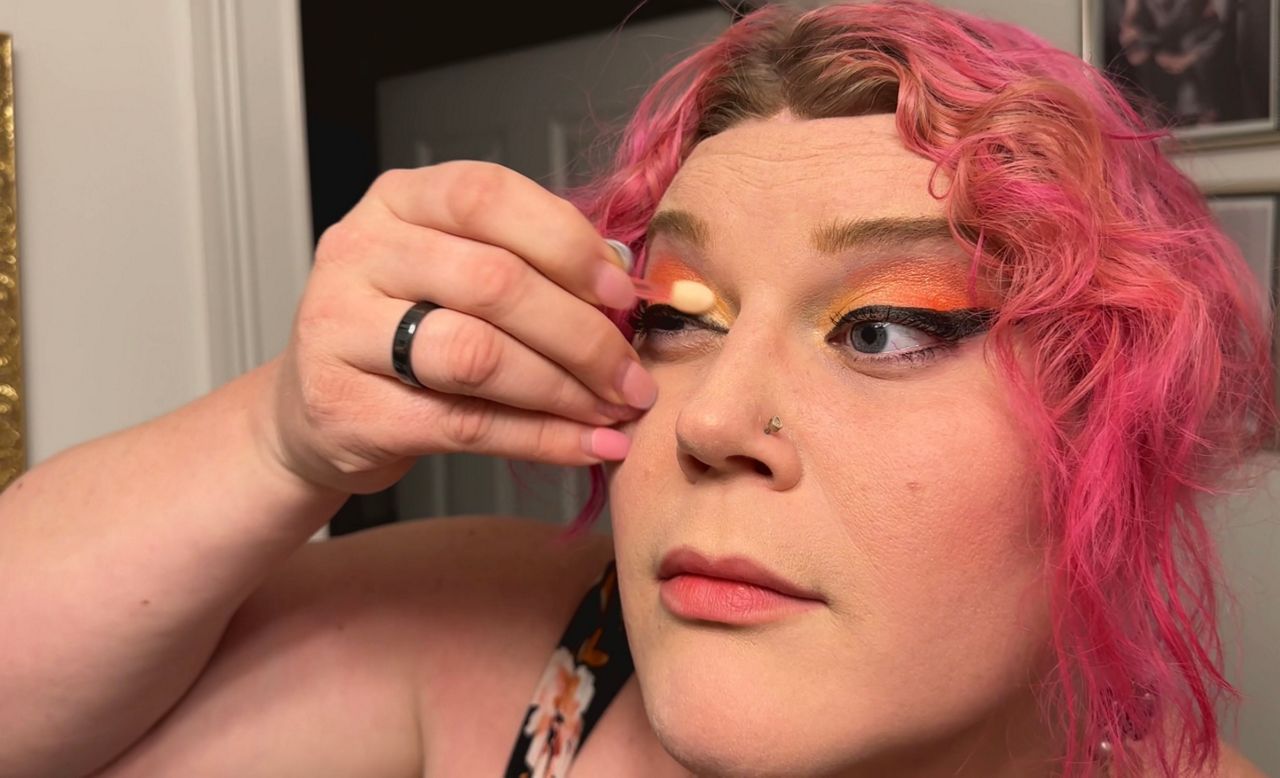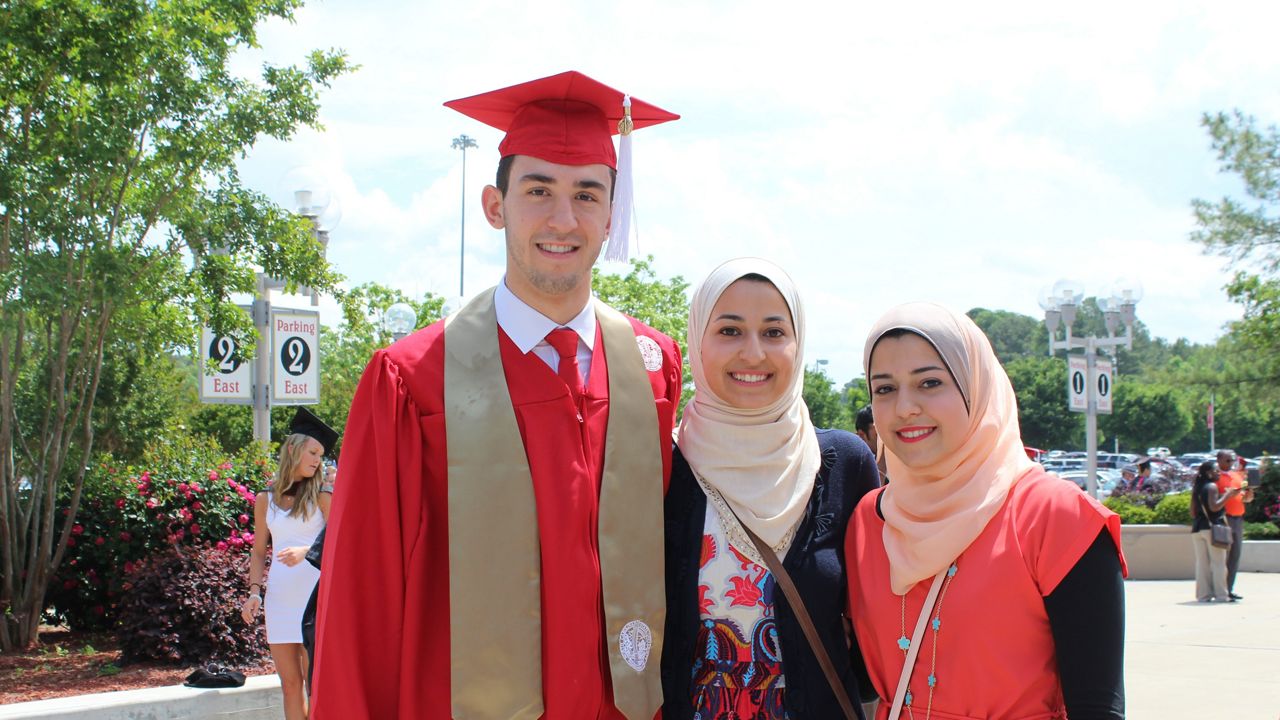SALISBURY, N.C. — Gender-affirming surgeries are a conversation happening in many LGBTQ+ and religious communities. It has been one month since The Holy See reaffirmed its stance opposing gender-affirming care.
What You Need To Know
- It has been one month since the release of the the Declaration of the Dicastery for the Doctrine of the Faith “Dignitas Infinite” on Human Dignity
- One section of the document discusses the Catholic Church's views on gender-affirmation surgery
- Juliette Faroe is a trans woman who began transitioning around three years ago
- She has received surgeries to help feminize herself as part of her transition
Makeup. It’s something Juliette Faroe always admired but never knew if it would be something she would do.
“I think I was kind of fascinated by watching, like, the women in my life, too. But I don't think that it was something I ever imagined that I would get a chance to do,” Faroe said.

After watching many YouTube tutorials and trying out products, she finally found her perfect combination, wearing makeup almost every day, not to cover up but as war paint.
“I'm 5 [feet] 11. I’m larger, broader. I knew I was going to stand out, so I figured if I was going to stand out, I might as well give them something to look at,” Faroe said.
Where now lies blush and contour, something else was worn.
“I had a beard for probably the last decade, I didn't shave completely during that whole last decade prior to my transition. So that, more than anything was really covering up makeup is revealing myself,” Faroe said.
Faroe started her transition as a trans woman around three years ago.
“It didn't just come about out of nowhere. I struggled really, really hard towards the last few years prior to my transition and had some sobriety issues. I was drinking quite a bit,” Faroe said.
She said she always knew she was different than other boys at school but didn’t know the words for it. After accepting her true feelings and rehab, she finally felt comfortable in her own skin. Although not everyone was as welcoming to her transition.
“I was let go from the job that I was working at the time when I came out because of that,” Faroe said.

She continued on her transition journey, receiving numerous procedures, including facial feminization and top surgery, which includes implants.
“The top surgery was just a way to continue to make my body feel like it was as affirming as my face was,” Faroe said.
Besides clothing fitting better after the top surgery, she said it helped reaffirm in the mirror what she sees inside.
“When you're looking in the mirror, especially if you're looking in the mirror every day that you wear makeup, getting those flashes of seeing those male features is what can cause that dysmorphia, that gender dysmorphia and can hopefully not ruin the day. But sometimes it kind of can partly start feeling on the wrong foot. So not having some of those reminders of having gone through that puberty, it's nice. It's just a lot of relief when I look in the mirror now and see the face that I feel like I should have had,” Faroe said.
Last month, the Vatican released The Declaration of the Dicastery for the Doctrine of the Faith “Dignitas Infinite” on Human Dignity. One of the topics in the document discussed gender theory and sex change.
This section of the document on gender theory, starts by saying the church wishes “to reaffirm that every person, regardless of sexual orientation, ought to be respected in his or her dignity and treated with consideration, while ‘every sign of unjust discrimination’ is to be carefully avoided, particularly any form of aggression and violence.”
The document continues on to discuss the biological difference between men and women and says, “’We cannot separate the masculine and the feminine from God’s work of creation, which is prior to all our decisions and experiences, and where biological elements exist, which are impossible to ignore.’ Only by acknowledging and accepting this difference in reciprocity can each person fully discover themselves, their dignity and their identity.”
Under the sex change portion of the document, it reminds its readers the Catechism of the Catholic Church says, “the human body shares in the dignity of ‘the image of God.’”
The document does not mention the trans or transgender community directly, but says a sex change risks “threatening the unique dignity the person has received from the moment of conception.”
Dr. Chris Franks, an Owen D. and Mattie Holt McPherson Associate Professor of Religion and Philosophy at High Point University, says the Catholic Church is specifically strengthening the church's approach on sex change interventions.
“The language that's used in this most recent document, Infinite Dignity, doesn't mention the term transgender or trans sexual, it only mentions what they call sex change interventions, which they say put the person at risk of, doing something that would go against human dignity and accepting the biological sex of that was a gift from God,” Franks said. “The language that's used in this most recent document, Infinite Dignity, doesn't mention the term transgender or trans sexual, it only mentions what they call sex change interventions, which they say put the person at risk of, doing something that would go against human dignity and accepting the biological sex of that was a gift from God,” Franks said.
The document does state in part “a person with genital abnormalities that are already evident at birth or that develop later may choose to receive the assistance of health care professionals,” which does not constitute a sex change in the sense of the document.
“People have surgeries on a regular basis to correct things in their bodies to help facilitate healing in their bodies, too, and for cosmetic procedures. Even a lot of CIS people do things that are gender affirming. If you don't think that CIS women or CIS men have surgeries to either enhance or fix features that they don't like about themselves, that's just silly. Like it happens all the time on a daily basis, but nobody has a problem with that since people also have to take hormones for gender-affirming situations. There's men with low testosterone or women with low estrogen. So gender-affirming treatments, there's something that are for everybody potentially,” Faroe said.
Franks said he believes the document was not meant to upset anyone from the trans community yet instead was published to reconfirm previously notarized views.
“We could even say that in this document. What he's doing is taking teaching that has been there in the church for a while and sort of contextualizing it in things that have been really important to him, like that human dignity is threatened with poverty or with mistreatment of migrants or with war and things like that. And he wants to hold up this notion of human dignity as sort of a centerpiece of the church's moral reflection,” Franks said.
He also said many regions consider there to be only two genders and there have been multiple documents related to gender form the Catholic Church. Some have even praised Pope Francis for working to be more inclusive in addressing sexual identity and orientation, including holding audiences with some trans women.
“I think that we can each kind of do our part to try to make things a little bit more fair and a little bit more equitable. In doing that, it hurts people that are in the Catholic faith. It hurts people who, you know, do abide by, generally speaking, a lot of what the Catholic Church stands for or the other the other religions. But it just doesn't because this one part of their lives that's a very important part of their lives doesn't mesh, it's like they become an outcast,” Faroe said.
Faroe did attend Catholic school briefly but said personally it is not something that she could let influence her personal life.
With more attention on gender-affirming surgeries, the debate and acceptance is likely to continue.
“We are friends or loved ones or family. For a lot of people, until they have one of us close to them in their lives or they meet us and really get to know us, I get where there may be some uneasiness on their part, but I challenge you just to get to know some of us. We're like anybody else,” Faroe said.






_Cropped)


